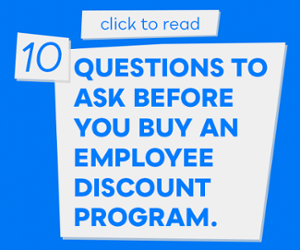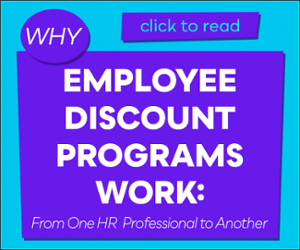They’re the stereotypical middle child. They’re independent, self-sufficient and pretty darn adaptable when the situation calls for it. They tend to make the least amount of fuss and as a result, typically receive the fewest accommodations.
Situated between two of the most impactful cohorts to date, Generation X has earned its reputation as the “sandwich generation”. On one side, Baby Boomers are winding down their careers as they near retirement. On the other, ambitious Millennials abide by their own set of rules.
But Gen X is a vital part of that sandwich. In a great deal of organizations, Generation X employees are the “meat” of production. Though they comprise approximately one-third (33%) of the workforce, these seasoned employees hold over half (51%) of workplace leadership positions globally. With a couple decades of experience under their belt, they know what they’re doing and, in many companies, run the show.
But since they have a tendency to slide under the radar compared with other generational groups, too often their job satisfaction is dangerously overlooked.
Just What Does Generation X Want?
At the end of the day, what Gen Xers want from an employer probably isn’t drastically different from their co-workers in other age brackets. But understanding their reasons why will lead to smarter decisions that’ll keep these crucial team members on board and engaged.
So what do we know about Gen X workers? And how do we use that to create an environment where they flourish?
1. Gen X is Responsible and Self-Motivated
Most of these “latch-key kids” grew up to become innately independent and accountable adults. Many spent enough time home alone to learn from a young age how to prioritize their time and solve problems creatively. As a result, they’re independent, innovative employees who excel when given room to make their own decisions.
What This Means For Employers:
Listen to them. Generation X is innovative and highly adaptable – just what many organizations need in this rapidly-changing, digitally-charged economy. Open the door to their suggestions and allow them to execute out-of-the-box solutions. Steer clear of telling them what to do and instead include them in organizational strategizing. Once they understand what they need to accomplish, give them space to figure out the best way to do it. Take Lee Iacocca’s advice when he said, "I hire smart people and get out of their way.”
2. Gen X is in the Middle of Their Career
Ranging in age from 40-55, most Gen Xers still have the better part of their career ahead of them. Though they’ve acquired considerable experience, many have numerous professional goals still on their horizon. These are people that grew up in an era of social and technological change and they thrive on new challenges.
What This Means For Employers:
Organizations shouldn’t assume their Gen X employees are content staying put. In fact, one study suggests 37% of Gen Xers consider leaving their current employer to advance their career. However, when an employer provides growth opportunities within the company, they have a tendency to be tremendously loyal employees.
67% of Gen X leaders want more external coaching, according to one survey. Bring in outside experts to provide the guidance Gen X employees seek so they continue progressing professionally. Then promote them within so they don’t go sniffing around for outside opportunities.
3. Gen Xers are Caregivers
One thing most people from Generation X have in common is their role as a caregiver. Many have dependent children, others are attending to aging parents and a good number provide care for both.
What This Means For Employers:
Gen X employees don’t just want flexibility, they require it. But being self-motivators, they’ll get their work done if left to their own schedule. Gen X employees are the least likely to unplug on vacation, according to a report from Project: Time Off. In addition, they feel more comfortable taking time off knowing they can connect to work. Give them plenty of time off and the freedom to make their schedule based around their familial needs. Entrusting them with these freedoms will likely return huge dividends.
4. Gen Xers Value Financial Wellness
In the mid and late 70s, many Gen Xers saw their parents experience downturns in the economy and felt the effects. As a result, they cautiously entered an economically sound workforce during the 1980s and early 1990s, placing a high priority on financial success. And this hasn’t changed over time. One study discovered that 71% of Gen Xers are more likely to be attracted to another company that cares more about their financial well-being.
What This Means For Employers:
In addition to paying them adequate wages and offering regular salary increases, provide benefits that help them achieve their financial goals. A combination of benefits that meet immediate and future needs works best. For example, give them options to set money aside for retirement and help them save money on everyday expenses with employee discount programs.
5. Gen X is Tech-Savvy
Generation X grew up without cell phones and remember life before the internet. But don’t let that fool you. Research suggests Gen Xers embrace technological advances and are just as digitally adept as their younger counterparts. A Nielsen report found them to use social media more than any other generation and to spend the most time plugged in to their devices.
What This Means For Employers:
Give these workers challenging projects and watch them use their technical expertise and connectedness to find solutions. In addition, provide benefits that can be accessed digitally through websites or mobile apps to gain the most usage from your Gen X employees.
Gen X Employees Will Shape The Future of Your Company
Not only are Generation X employees the majority of leaders within organizations, they place a high value on mentoring others, according to generational expert Meagan Johnson. In many ways, they’re the glue that holds the workforce together. They are excellent communicators and, when given the chance, will help bridge the gap between older Boomers and younger Millennials. In addition to seeking personal growth, they will guide and train their co-workers to propel the business forward.
For more insights regarding managing a multi-generational workforce, read “Bridging the Workplace Generational Gap (When Tom Brady Isn’t Around To Do It For You).”







